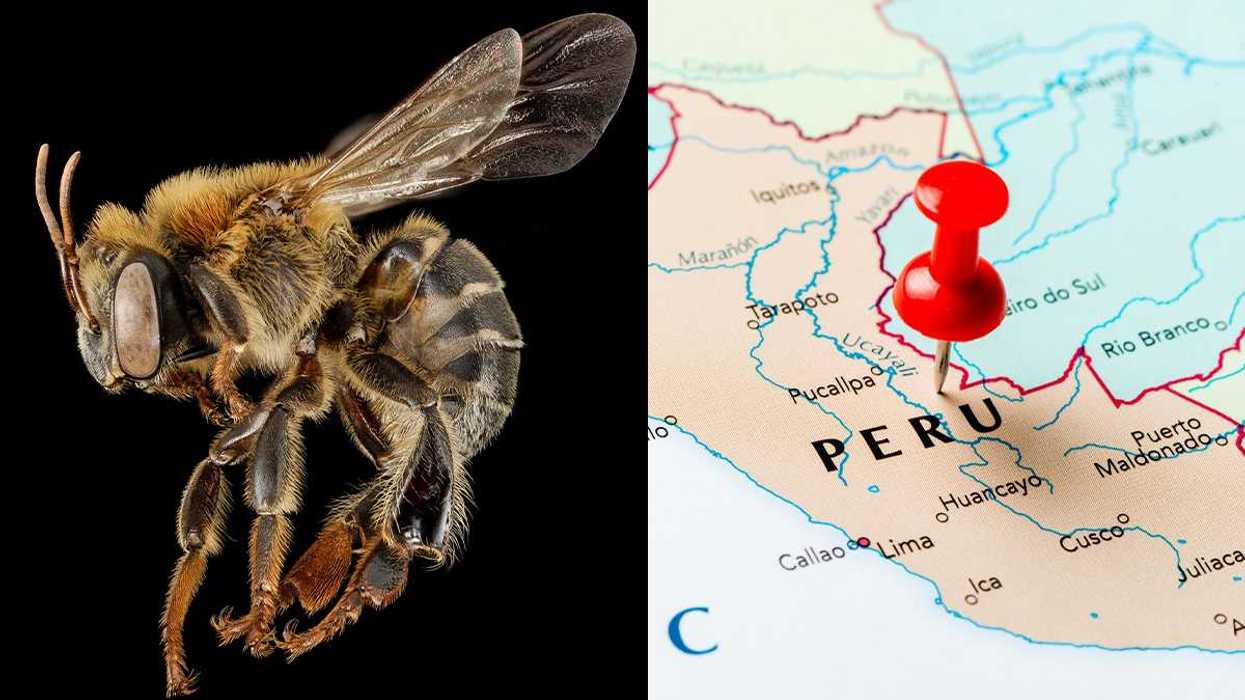President Trump signed an executive order in June to "prosecute to the fullest extent permitted under federal law" those who vandalize government property.
The order was a strong-man tactic to punish Black Lives Matter protesters who tear down Confederate statues. Because, for some reason, he felt the need to protect statues celebrating an insurgency the United States vanquished in 1865.
"I just had the privilege of signing a very strong Executive Order protecting American Monuments, Memorials, and Statues - and combatting recent Criminal Violence," Trump wrote on Twitter. "Long prison terms for these lawless acts against our Great Country!"
Federal law allows 10 years in prison as maximum punishment for such vandalism.
However, it appears as though the order may backfire on the president, resulting in harsh sentences for his supporters that stormed the capitol building on Wednesday.
After all, the capitol building is federal property.
It's ironic that the law he enacted to punish those who protested him could wind up resulting in maximum sentences for those who rioted in his honor.
Trump clearly supports their act of sedition. "We love you, you're very special," he told the domestic terrorists in a Wednesday address.
Acting Attorney General Jeffrey Rosen says the capitol rioters will "face the full consequences of their actions under the law" and law enforcement agencies have already begun the hunt for them.
"Our criminal prosecutors have been working throughout the night with special agents and investigators from the U.S. Capitol Police, FBI, ATF, Metropolitan Police Department, and the public to gather the evidence, identify perpetrators and charge federal crimes where warranted," Rosen said in a statement on Thursday.
"Some participants in yesterday's violence will be charged today, and we will continue to methodically assess evidence, charge crimes and make arrests in the coming days and weeks to ensure that those responsible are held accountable under the law," Rosen continued.
With two weeks left in his presidency, Trump will be long gone before any of the rioters have the chance to be pardoned by the president. So they'll be at the mercy of the Biden's administration which won't look kindly on those who tried to overthrow his election.
















 Creativity and innovation are both likely to become increasingly important for young people entering the workplace, especially as AI continues to grow.
Creativity and innovation are both likely to become increasingly important for young people entering the workplace, especially as AI continues to grow.

 Peru stingless bee.USGS Bee Inventory and Monitoring Lab/
Peru stingless bee.USGS Bee Inventory and Monitoring Lab/  Indigenous Peruvian people.Photo credit
Indigenous Peruvian people.Photo credit 
 As mayor of Stockton, Calif., Michael Tubbs ran a pioneering program that provided a basic income to a limited number of residents.
As mayor of Stockton, Calif., Michael Tubbs ran a pioneering program that provided a basic income to a limited number of residents. Martin Luther King Jr. believed Americans of different racial backgrounds could coalesce around shared economic interests.
Martin Luther King Jr. believed Americans of different racial backgrounds could coalesce around shared economic interests.
 Confident young womanCanva
Confident young womanCanva
 Women and people of color who experience cardiac arrest are less likely to receive CPR.
Women and people of color who experience cardiac arrest are less likely to receive CPR.
 Self reflection.Photo credit
Self reflection.Photo credit  Older woman touching hands with a younger self.Photo credit
Older woman touching hands with a younger self.Photo credit  Sign reads, "Regrets Behind You."Photo credit
Sign reads, "Regrets Behind You."Photo credit 
 Couple talking in the woods.
Couple talking in the woods. Woman and man have a conversation.
Woman and man have a conversation. A chat on the couch.
A chat on the couch. Two people high-five working out.
Two people high-five working out. Movie scene from Night at the Roxbury.
Movie scene from Night at the Roxbury.  Friends laughing together.
Friends laughing together.